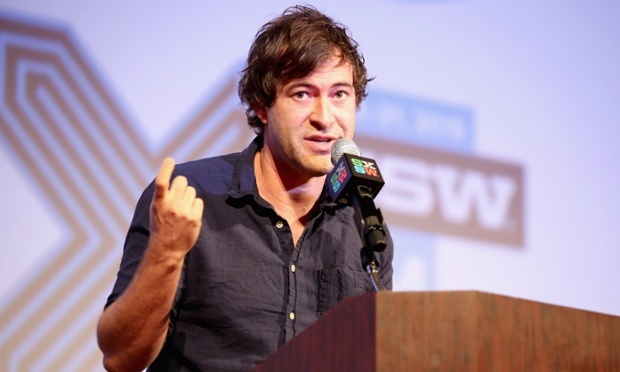
“Are you excited?!?” People would ask me over and over leading up to this very day.
21. I turn 21 years old last Monday. It’s one of those “big” birthdays where I’m supposed to feel different and like a new person. In some ways I do and in some ways I feel just the same (still madly into watching Parks and Recreation episodes on Netflix)
It’s been a good but bumpy year since June 2014 when I turned the big 2-0 (aka the most awkward age…not a teenage yet still not able to legally drink, check-in at a hotel, make reservations on some things, etc.)
Things are good though. I’ve accomplished a lot and have been reflecting these past few weeks about what I’ve learned so far. This was the year I became a full fledging adult, the year I started my first post-grad job. Good stuff. Below, are some 21 things I’ve learned so far.
1. If you’re going to do something, give it 100% or don’t do it at all. Taking a risk is scary. Taking a big risk, not knowing the exact outcome, is super scary. So what. That’s what you’re going to have to deal with if you want something really bad. I see so many people who want to:
-Get into photography/graphic design/consulting
-Start a successful and nicely designed blog attracting thousands of visitors each month
-write a novel
-etc. etc. etc.
So many people start things without fully knowing why they want to do it. Sometimes they only want do to something because they see others similar to them doing it so they think they should do it too.
Whatever you decide to do, figure out why you want to do it. What is the burning desire and motivation behind it? Once you figure it out, spend several hours a week doing it. When you are unable to do (commuting in the morning, grocery shopping, and so forth) continue to think about it.
2. You most likely do have time. As a recent college graduate, I’ve noticed something lately. When people start working full-time after graduation, they suddenly are always busy and never have time to do the goals they want to achieve.
Many of them come home from their full-time jobs exhausted, and instead of focusing on a project or activity they want to do, all they do for the entire evening is watch TV and make some dinner. It only starts with one episode…
Most who say they don’t have time to do the things they want probably do have time. Monitor your time and figure out how to maximize. Could you go to the bank at a different time to avoid the long line? Could you wake up earlier to go to the gym? It’s all about priorities.
3. Make exercise a priority. Exercise is obviously very important yet a lot of people don’t have it high on their list (or even on their list). Exercise makes you feel better, sleep better, and think more throughly.
Do it. You have time for it. Whether you have to wake up an hour earlier in the morning or skip watching an hour of TV in the afternoon, make time for exercising.
4. Get water at restaurants. Seriously, it’s cheaper, and better for you to drink water rather than soda. Bring those water enhancer packets if you want something more flavorful.
5. If you really want something, dedicate your time to work towards it. Even during times when you can’t work on it (commuting, down times at work, etc) at least think about it. So many people are afraid of diving into doing something because they don’t know the exact outcome. The common fear is:
“What if this is all just a big waste of time?”
Well, you’ll never know if you don’t try. Experience is experience. Trying and failing will help you sleep at night. Not trying at all will keep you up, wondering what could have been.
6. People can be really nice and helpful to you. Spring 2014, I applied to a NYC start-up PR agency and didn’t get the internship. Feeling super down, I decided to send an email to the agency’s CEO. Why not right? I didn’t thing he would respond…but he actually did. He set up a call with me and gave me great insight into starting his agency. Later on in the summer while in New York City, I got to visit the agency!
I’m sure he was helpful to me, in part, because of the personalized email I sent to him rather than some generic template email. Remember, people can and do want to help you. You just have to know how to reach out to them and ask. Lindsay Shoemake mentioned in a That Working Girl post of how she set up office visits with agencies and even got to work on some stuff! All by simply reaching out and asking.
7. People give empty promises & flake. I just mentioned how people can help if you reach out to them. Well, people can also completely ignore you, give you an empty promise or just not deliver on what they said.
I experienced this last year when an article of mine went viral. Several people reached out to me and said they wanted to help me. They were going to help me find jobs, connect me with senior industry professionals, and so forth.
One of them I remember well. A news reporter from a well known station contacted me to get quotes for a feature story. She contacted me several times and said she had a flexible schedule and could talk to me whenever time opened up in my schedule. During the phone conversation, she mentioned how inspired she was by me and how if I needed any assistance in finding my first post-grad job, she would help. Things changed after the she had gotten her quotes and the story ran. When I contacted her with some questions, she responded days later saying she was busy and to just send the questions over in email.
Disappointing.
The news reporter wasn’t the only one who backed out after saying she help me. Several of the other people who “had job offers” for me and “knew people” dried up and weren’t as responsive after the the fanfare of my article died down.
Point being, never rely too much on someone when they say they can assist you with something.
8. Don’t censor yourself. It’s something I’ve done for years and years. When I was in high school, I would talk about investing and design trends. In college, when discussing the types of jobs after graduation, I would always mention 401(k) retirement, building savings, web design lingo, indie film stuff and so forth. The people around me would always have weird looks on their faces. To them, all that mattered at the moment was drinking, partying, and trying to get through the semester with no D’s.
Don’t censor yourself. Don’t feel like you have to dumb yourself down when around people.
9. You are who you surround yourself with. It’s taken years for this to finally get nailed into my head. I found I was most productive and ambitious when I was around people who were smarter than me, and were working towards goals in the same vein as mine. Right now, I’m around people who are ambitious and have big plans. In the online world, I’ve connected with like-minded creatives through Twitter chats like Kayla Hollatz’s #createlounge.
10. Keep a journal. And write in it every day. Even if it’s just one sentence. Do it. I’ve keep a journal for the past three years and it’s so freaking awesome to see how much my perspectives on things have changed. Days aren’t lost. I get to know what did last February. Write in detail about your day or just write a few sentences about the purpose of the day and what you did.
Time moves fast. It’s fun to reminisce every once in a while.
11. Traveling doesn’t have to be super expensive or time-consuming. Why is it when people think of traveling, they automatically think of prancing through Paris, backpacking through Europe, or visiting the “cool” places (I’m looking at you Italy, England, France, and Germany).
In this past year, I’ve visited South by Southwest Festival in Austin, TX; New Orleans, LA; Chicago, IL; NYC 3 times (!!!); San Francisco; Los Angeles; and Cozumel.
Instead of jetting off to some foreign country for a week, why not visit some great sites in your home country. There are tons of great sites to explore in the US (assuming you live in the US). Embrace weekend adventures. Take Friday off of work and have a three-day adventure in Washington State, Napa Valley, The Grand Canyon, NYC, and so forth.
During my travels, I either stayed in hostel-type AirBnB rentals with other travelers or with friends. I looked for discounts on flights. Managed on when to eat out a nice restaurant or not, took lots of pictures instead of buying souvenirs, and so on.
Traveling doesn’t have to be this huge expense. The most important thing it takes is having an adventurous mindset.
12. “Dream jobs” take years of hard work. It’s the reality of working. The millenial generation was brought up on the mindset to “follow your passion”, “pursue your bliss” and so forth. We thought that by taking a career assessment, scoring high on marketing/fashion/PR/etc, and getting a few internships under our belt meant we would get our dream jobs right after college.
Not so quite.
Dream jobs take time. Just because you aren’t in yours yet doesn’t mean your a failure. Keep your head up, keep working, and don’t give up. Don’t stop searching and exploring.
13. Multiple sources of income are a must. I don’t want to just rely on a full-time job to provide me with income. I never want to be completely at the mercy of a job to provide me with the income I need to pay bills, rent, and life expenses.
Within the coming months, I’m going to start building up ways to make passive money to pad my monthly income.
14.Entrepreneurship is in the corner of my eye. I never thought I would want to own and operate my own business. After seeing the crazy commuting times people go through, the layers of bureaucracy corporate america has, and overall nature of many employers not treating employees well, entrepreneurship was become more attractive to me. I’m ramping up my web and graphic design skills at the moment. Within the near future, I hope to either have my own full-time business or be able to run a successful side business.
Nectar Collective had a great post on the grit and curious heart she had when building up her own design business.
15. Be very aware of your time. Since starting my full-time job, there has been some adjustments. I try to be more strategic with the time I have. Creating a routine has become vital. Here’s the loose one I’ve been following:
Monday/Wednesday/Friday: 4:00 a.m (Wake up)
4:00 a.m-5:00am (Shower/breakfast)
7:00 am-4:00pm (work)
4:00pm-5:30pm (commuting)
8:00pm (bedtime)
Tuesday/Thursday: Exercise days
3:00 a.m (Wake up)
3:30 a.m-4:15am (gym time)
4:30am-5:00am (shower/breakfast)
7:00 am-4:00pm (work)
4:00pm-5:30pm (commuting)
8:00pm (bedtime)
Saturday/Sunday: Exercise days
I make sure to hit the gym 4x per week. Doing it before work is a challenge since I have to be super alert on monitoring my time (I take only 5 minute showers on Tuesdays/Thursdays). I would rather just press the snooze button on waking up but going early in the morning is a lot better than the crowded evening time.
16. I love graphic and web design. I want to learn more about them. I want to go to a three month coding intensive bootcamp school.
17. Know the deep inner reason of why you want to pursue something before going after it. I want to start a design side business and finish my novel. Why do I want to start a design side business? I want to do it because reflect on the anxiety I had when being in between jobs, having to deal with bad work conditions, and struggling to make ends meet. I want to start a design side business so I can work on projects that fulfill and excite me and give me the opportunity to not be so reliant on a full-time job for a source of income.
I want to write my novel because I’ve always had a love of words. I want to prove my creative writing professor from college, who said short story wasn’t good despite the rest of the class loving it, wrong.
18. When in peril, watch Netflix or one of your favorite movies. At times, I get so consumed with all that I want to do. Burnout sets in. Watching some of my favorite inspiring movies can sometimes help me feel recharged and inspired again.
Remember though, good things are better in moderation. Don’t spend all day on Netflix watching Friends! No matter how tempting it is!
19. Your 20’s are for living below your means. After getting their first post-grad jobs, so many people start buying lots of things they may not need. Having a paycheck (and not as many bills as older adults) excites them and they go out and buy a new car, deluxe cable package (because they just have to watch Scandal), eat out a lot instead of packing their lunch at work and endlessly spend money on many things when they could just save.
Buy generic/store brands
Learn to cook at home. Plan your meals ahead of time
Hold on to your old car as long as possible and when it is time to buy another car, get a gently used pre-owned vehicle rather than a new vehicle.
Don’t worry about staying in some flashy, upscale apartment
Save. Save. Save. I’m saying you be super frugal and never go out. No way. By all means, hang out with friends and treat yourself every once in a while. There’s a balance to be struck. A balance between living in the moment while still planning for the future. Find it.
20. Having a dedicated workspace is crucial. For 12 months, I basically lived out of a suitcase. Bouncing between place to place with coffee shop visits sprinkled in. I carried my laptop, chargers, and external hard drive with me in a backpack for a portable workstation.
While it was great (I got to write my novel in several different locations across many states!) it was also distracting at times. Just last month, I finally settled into a place of living and have a desk and area where I go when I want to work on this blog, do graphic design stuff, write my novel, and so forth.
I have a space where I can go and get into “work mode”. It’s done wonders for my productivity.
21. I am going to be a published author
My novel. Oh, my dear little novel. I love it so much. I’ve been working on it on and off for two years. Lately I’ve made good progress on the editing of it. This year I will publish it. In the coming months, I’ll start to release more information on it. Get ready!






















